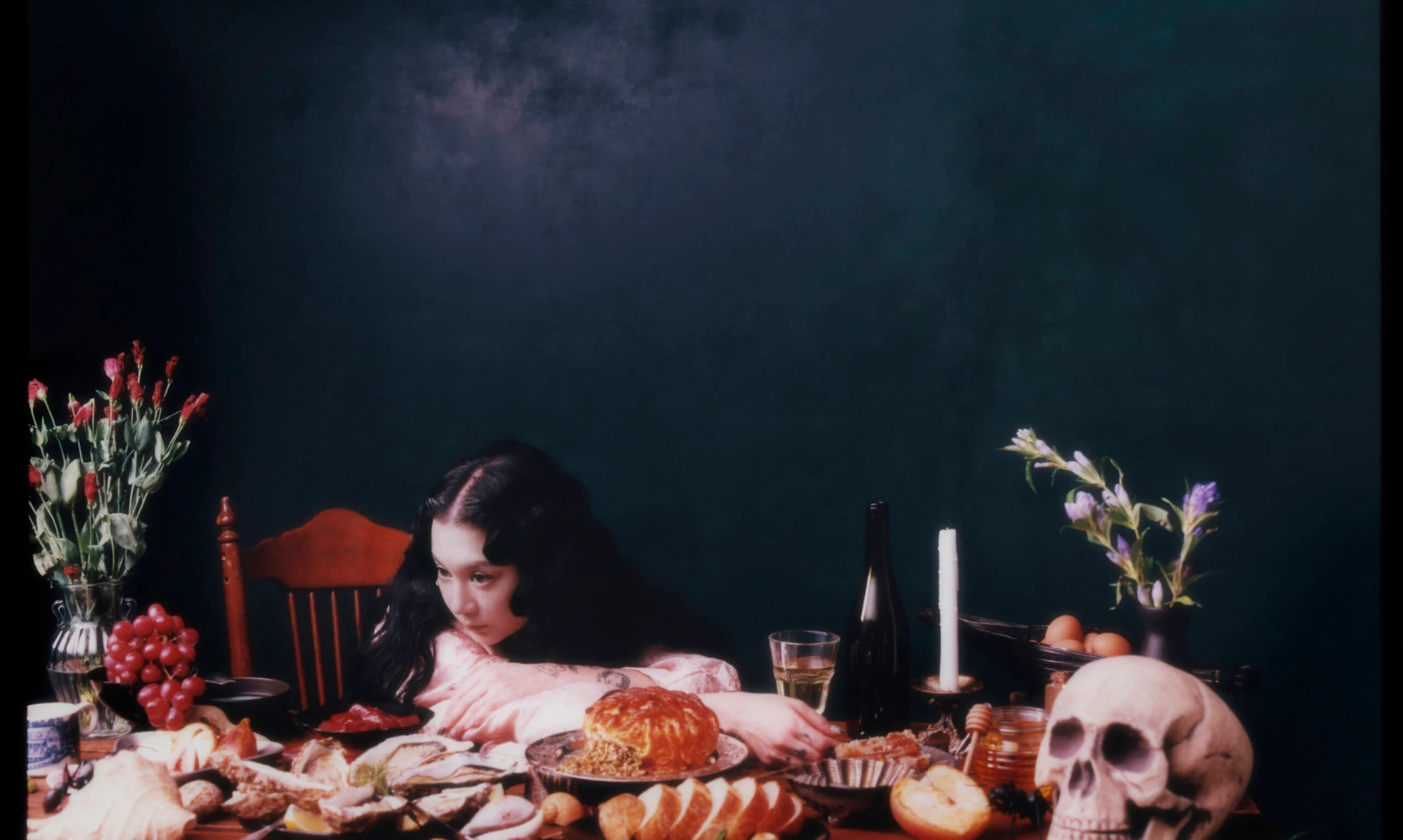

Label: Dead Oceans
Released: March 21, 2025
I have to admit, when Japanese Breakfast announced the title of her first album since 2021, I thought to myself, “See, I knew she really gets me.” For Melancholy Brunettes (& sad women) marks a distinct shift from singer-songwriter Michelle Zauner’s previous work, which has been largely improvisational, bombastic, and anti-establishment. 2021 was really Zauner’s year, with the release of the GRAMMY-nominated Jubilee and the publishing of her New York Times-bestselling memoir, Crying in H Mart. Following the tour cycle and book tour, Zauner and her husband (also a member of Japanese Breakfast) moved to Seoul to spend a year immersed in her Korean culture, a promise she made to her late mother before she passed. For lack of a better cliche, For Melancholy Brunettes (& sad women) starts a new chapter for Zauner sonically and lyrically, while still authentic to the artist we’ve come to know and love.
For the band’s first commercial studio release, Zauner joined forces with avant-garde producer, Blake Mills, who has worked on some of my favorite records from artists like Laura Marling, Perfume Genius, and Weyes Blood. Mills’ fingerprint is immediately apparent on the album’s opening track, “Here is Someone,” which starts simply with plucked strings that open into a discordantly beautiful cacophony of sound. Maybe one day I’ll write a dissertation on how Blake Mills is one of the most underrated producers working in music today, but the lush sonic world he and Zauner build really speaks for itself. Whereas Japanese Breakfast’s previous album, Jubilee, was bright and frenetic, For Melancholy Brunettes (& sad women) is more subdued and subtle, but certainly not lacking in immaculate detail.
With this more laid-back sonic approach, Zauner’s songwriting is front and center throughout this record. The themes and references are deeply intellectual, with inspiration ranging from Degas to Wuthering Heights to Hans Castorp. Thematically, many of the songs center male characters, but Zauner depicts them as insidious, deceptive, or just plain gullible, all with a wry smile. “Orlando in Love” completes a bit from John Cheever’s Orlando Innamorato, an unfinished epic made up of 68 ½ cantos by the Renaissance poet Matteo Maria Boiardo, where the hero finishes his 69th canto and falls victim to a siren call from the ocean and drowns. “Honey Water” is a rage-filled lament from the perspective of a woman whose partner has been unfaithful, likening his temptation to that of a puny insect lured by honey-infused water. Sonically most akin to her previous work, “Mega Circuit” paints a tongue-in-cheek painting of an incel gang that Zauner finds herself the center of.
In remarks about the album, Zauner names sadness as the emotional throughline of For Melancholy Brunettes (& sad women). For those of us familiar with her work, both musical and literary, we know she has a long history with grief and deep sadness – her best-selling memoir, Crying in H Mart, tells the story of her mother’s cancer diagnosis and how they spent her last days together. And yet, Melancholy Brunettes distinctively sets apart sadness from grief, and even sadness from melancholy. Sometimes, we need to let ourselves fully languish to know what hope or happiness feels like, which to me is reflected in songs like “Little Girl” or “Leda.” “Picture Window” is an anthem for neurotic girls everywhere who tend to catastrophize at the very first sign of irregularity. The lyrics “Do you not conceive of my death at every minute; While your life just passes you by?” may not be relatable to all, but they resonate deeply for those of us who identify as the perpetually anxious friend or partner in contrast to the carefree (and mentally well).
The last third of the album really cements this settled feeling that some of us are just wired with a proclivity for the morose. “Winter in LA” illustrates the overwhelming depression Zauner feels anytime she’s in the City of Angels, yearning to be someone who can mirror the happiness and energy that surrounds her. This isn’t to say For Melancholy Brunettes (& sad women) is completely hopeless; in fact, within the sadness comes hope for better days and love for the people to bring us out of our despair. The record gives us permission to sit in our sadness, maybe even rot in it a little, and find the beauty that it can give us. Japanese Breakfast creates a calm, complex, and meditative landscape where we can recognize feeling emotion, at any scale and any depth, is a gift, not a curse.
— Melanie Broussalian
